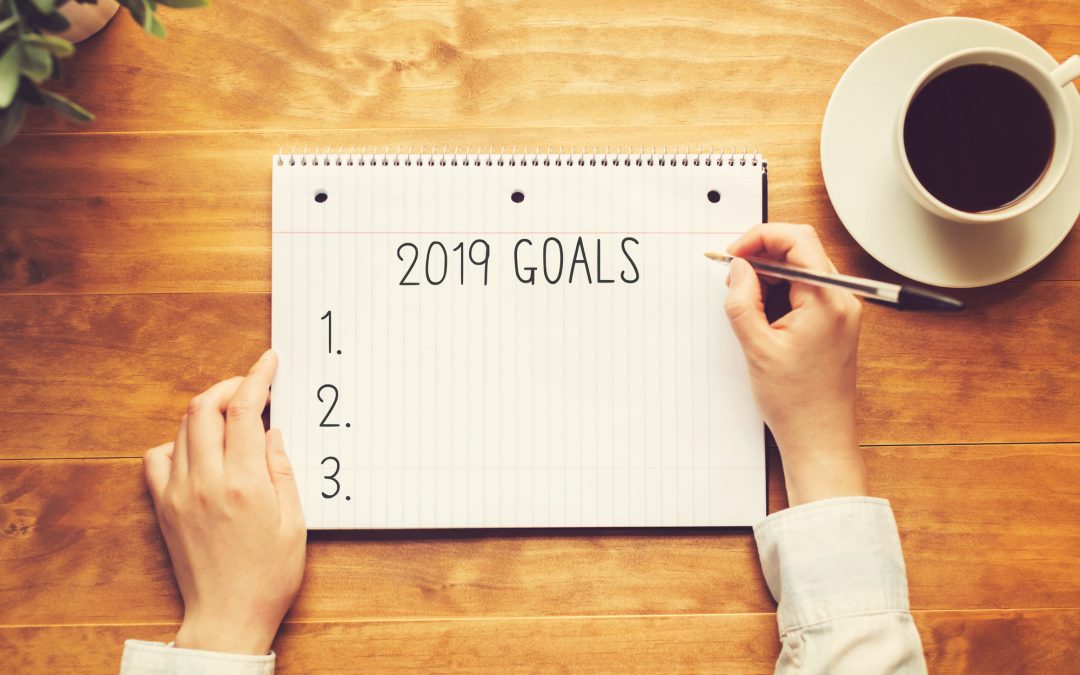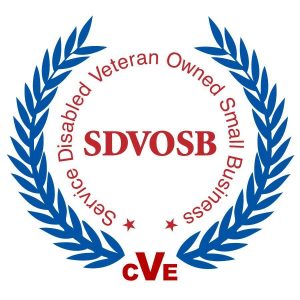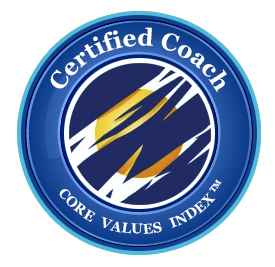
by Dr. JL Knight | Jul 16, 2019 | Components of Transformation, Decision Making, Discipline, Life Coaching, Mindset
Everyone makes mistakes. When I make a mistake, I own it. I learn from the error and am bettered by it. (I Can Do It)
I accept accountability for my decisions and actions. Being responsible is a way of being and thinking for me. It empowers me, because I feel increased control over events in my life. (I Can Do IT)
I take equal pride in my strengths and shortcomings. I refrain from making excuses. Instead, I develop resolutions. Resolutions are an acknowledgement of the challenges I face, coupled with a solution for overcoming.
For others, it may be easier to be irresponsible. Being accountable is demanding, but I rise to the occasion. I police my own actions because I have a responsibility to myself. I must be able to depend on myself before others can.
When I voice responsibility for my actions, others notice. I am an example for them to follow because I am reliable and trustworthy. They know they can depend on me. Because I am dependable, my decisions and actions affect and influence theirs.
Persistence, honesty, and integrity are fundamental traits I possess. I rely on these traits when I accept accountability for shortcomings.
Today, my ability to accept responsibility has a positive impact on others. I am looked to for guidance. I seek new ways to guide others. It feels great to know others can rely on me to help them overcome obstacles.
Self-Reflection Questions:
- Whom do I look to for guidance?
- How has being accountable had a positive impact in my life?
- Have I seen examples of the adverse effects of being irresponsible?
By Dr. Jacqueline L. Knight
The Business Transformation Coach, LLC
Copyright © 2019

by Dr. JL Knight | Jul 1, 2019 | Decision Making, Leadership Coaching, Life Coaching, Mindset, Personal Transformation
Finding a competent and compatible coach is only half the battle. It’s also important to develop your own coachability.
If you’re like most professionals, you probably want to succeed, but you may resist coaching for reasons that you’re not even aware of. However, you can develop skills and qualities that will prepare you to accept guidance and act on it.
Learn how to become more coachable. Use this checklist to find the areas you need to work on so you can have a successful relationship with your coach.
Communication Skills:
- Listen closely. Pay attention to what your coach has to say. Look for the truth in any message instead of dismissing their perspective or trying to make excuses. Maintain eye contact and resist any urge to interrupt.
- Ask questions. Ensure you understand what your coach is telling you. Paraphrase their statements in your own words. Clarify any points you’re unsure of and ask for concrete examples.
- Take your time. Let yourself absorb information fully. Focus on responding thoughtfully rather than quickly. If a situation stirs up strong feelings, give yourself an opportunity to calm down so you can think clearly.
- Welcome feedback. Ask others for input frequently and graciously. It helps to stay in practice and have multiple viewpoints while you’re working with your coach.
- Watch your body language. Ensure that your gestures and expressions are friendly and consistent with your words. Coaches are human. It’s easier for them to fully engage with you when they feel respected and appreciated.
- Open up. Recognize that there is more than one way to approach the same goals. Consider your coach’s suggestions even when they’re different from your usual methods.
Other Skills and Qualities:
- Value learning. Are you excited about adding to your knowledge and stretching your skills? Learning is a mindset that helps you to make sounder decisions and adapt to change. It can also motivate you to persevere through the coaching process.
- Set goals. While your coach can help you to reach your goals, you need to be sure that your targets are specific and meaningful for you. Write your goals out and tell others about them so you’ll feel more accountable.
- Adjust your expectations. Do you understand the difference between coaching and consulting? A consultant is usually hired to fix a specific issue. A coach works with you to build your strengths so you can achieve the outcomes you desire.
- Cultivate gratitude. Thank your coach for the positive impact they make in your life. Putting their insights into action is also an effective way to show them that they’re making a difference.
- Be humble. Remember that your coach and anyone you meet has valuable things that they can teach you. Tame your ego so you can create productive relationships and take advantage of rewarding opportunities.
- Practice consistently. How can you take what you learn from coaching and use it to make positive changes in your work life? Develop a strategy for enhancing your performance and set specific goals for areas where you want to grow. Deliberate practice requires discipline and effort, but it pays off.
- Evaluate your progress. Self-examination is an important part of the coaching process. Reflect on the areas that you’ve already covered and what you want to do next. Enjoy discovering more about yourself and your abilities.
Being coachable is about being ready and willing to learn and grow. Unlock your potential so you can achieve greater personal and professional success. Coaching can help you to clarify your vision and leverage your strengths if you know how to use the resources your coach provides.
Written by:
The Business Transformation Coach, LLC
Copyright © 2019

by Dr. JL Knight | Jan 1, 2019 | Decision Making, Mindset, Personal Transformation, Setting Goals
The New Year is the perfect time to start fresh. If there’s
any aspect of your life that you’d like to improve, set some clear and
attainable goals for yourself that will help you get there.
Take It Slow
Work towards your goal one piece at a time.
It’s important to take it slow and not take on too much at once. The main
reason that some people fail when it comes to their New Year’s goals is because
they fail to plan out a realistic path.
Follow Through With a Plan
It’s easy to say: “I
want to lose 50 pounds” or “I
want to learn a musical instrument.” Keep in mind that big goals like
these will take some time and effort. Diets are hard to start because you may
feel unmotivated or hungry. Musical instruments require time to master, and you
may start with weeks of just learning notes before getting to any fun melodies.
Remember that the beginning is tough. Muster up the courage and enthusiasm to
continue with your efforts. Remember that most people give up,
but you’re not most people, are you?
You’re different because, unlike most people, you’re going
to create a clear and realistic plan to take you right to success. If you’re
going to lose 50 pounds, define how you’re going to lose those pounds. Are you
starting an exercise routine? Are you going to join Weight Watchers or count
calories?
You know that you won’t lose the weight quickly; it’s a
steady loss that brings success. Even if you’re short a couple of pounds on one
of your short-term goals, you can revise your plan and kick up the pace, or
just continue on your path because you’ll reach your 50 pound goal before the
year is out. That’s what you’ll be able to accomplish with a solid plan in place.
Be Real
You have to stay realistic when it comes to your New Year’s
goals. The holidays are a joyful time, and often times you’ll feel motivated to
achieve something big. Know that you can
achieve big things, but there are also only 24 hours in a day.
Avoid making goals that would take more than a year to
complete. If you want to make a long-term goal like this, break it up into
parts and give yourself a realistic plan for your first year goal.
Visualize the Outcome
When you run into snags in the road, as you’re bound to in
life from time to time, it will help to visualize yourself reaching your
end goal. Visualizing it makes it feel real and motivates you to
continue to work hard to make it happen.
The Right Attitude
If you’re practicing the right attitude, you can go far.
It’s true that all you need to do is believe in yourself. You’ve
probably realized that if you don’t believe that you can accomplish something,
you simply won’t. How can you expect to achieve great things if you don’t
believe in yourself?
An optimistic attitude is critical to your success. Think
about how you felt when you first set your New Year’s goal. Chances are that
you had an excellent attitude, so try to maintain that mindset throughout your journey
to success with your goal.
Once you’ve determined a realistic goal and divided it up into short, achievable tasks, you’re bound for success as long as you take action to complete each step. Go ahead and make that New Year’s resolution, knowing that this year is going to be your most successful yet!
By Dr. Jacqueline L.Knight
Copyright © 2018 The Business Transformation Coach, LLC
By Dr. Jacqueline L.Knight
Copyright © 2018 The Business Transformation Coach, LLC

by Dr. JL Knight | Dec 10, 2018 | Components of Transformation, Mindset, Personal Transformation, Transformation
Success starts with mindset. Different mindsets give different outcomes. A poor mindset leads to poor results. A positive mindset leads to success. While your experience, education, and skills can matter a lot, your mindset can make all the difference.
Luckily, anyone can develop a mindset primed for success. It’s certainly easier and less time consuming than mastering a complex skill!
Create a mindset that creates success! Include these components in your mindset:
1. Gratitude. Be grateful of what you have and have already accomplished. Be happy for the success of others. If you can’t feel happy for others when they are successful, your own success will be limited.
2. Evaluation of risk and reward. Successful people are masters at evaluating risk and reward. Unsuccessful people either refuse to take any risks or take on far too much risk for the potential reward. Neither is a successful way to approach life.
3. Focus on emotional and physical health. Sacrificing your health for success isn’t true success. What do you really gain if you achieve your goals but sacrifice your physical or emotional health in the process? Know your priorities before chasing success.
4. Abundance. Believe that there is enough to go around. Then, you won’t be in competition with others. You’ll only need to compete with yourself. You’ll maintain a more positive attitude if you believe your dreams are possible. What do you believe is possible for you to achieve?
5. Keeping mistakes and failure in the proper context. Failure is guaranteed to happen more often than not. Learn from your mistakes and failures and try again.
6. Growth. Placing a priority on growth is a necessary part of success. You can’t achieve anything new without growing in some way. It might be your skills, attitude, discipline, or courage that need to grow. Rest assured, something needs to grow if you’re currently stuck.
7. A willingness to be uncomfortable. Growth isn’t pleasant. There will be discomfort as you develop yourself, fail, and make mistakes. Even success can be uncomfortable. How uncomfortable are you willing to be to become successful?
● The willingness to be uncomfortable is the limiting success factor for most people.
8. A positive attitude. How much are you willing to do if you’re certain you’ll be successful? A lot. How much are you willing to do if you don’t have high expectations? A lot less. Give yourself and your abilities the benefit of the doubt.
● Notice how you think and how you talk to yourself. Is it positive or negative? What impact do you think that has on you?
9. Planning. Success for each person is a precise goal. You’re not going to hit it on accident. Without a destination in mind and a plan for getting there, you’re relying too much on luck to reasonably expect success.
10. A great mentor. A mentor that has achieved the success you desire knows where your head needs to be. He knows what’s important and what’s just noise. Your mindset will be more accurate and effective if guided by a qualified mentor.
Think about your current mindset and compare that to the results you’re currently experiencing in your life. Can you see the connection?
If you feel that you have the skills you need to be successful, but still come up short, it might be time to take a look at your mindset. Anyone can choose their mindset. There are no prerequisites for having a great mindset. You can just choose. Put your mind into a positive state that aids in your success.
Dr. Jacqueline L. Knight
The Business Transformation Coach








